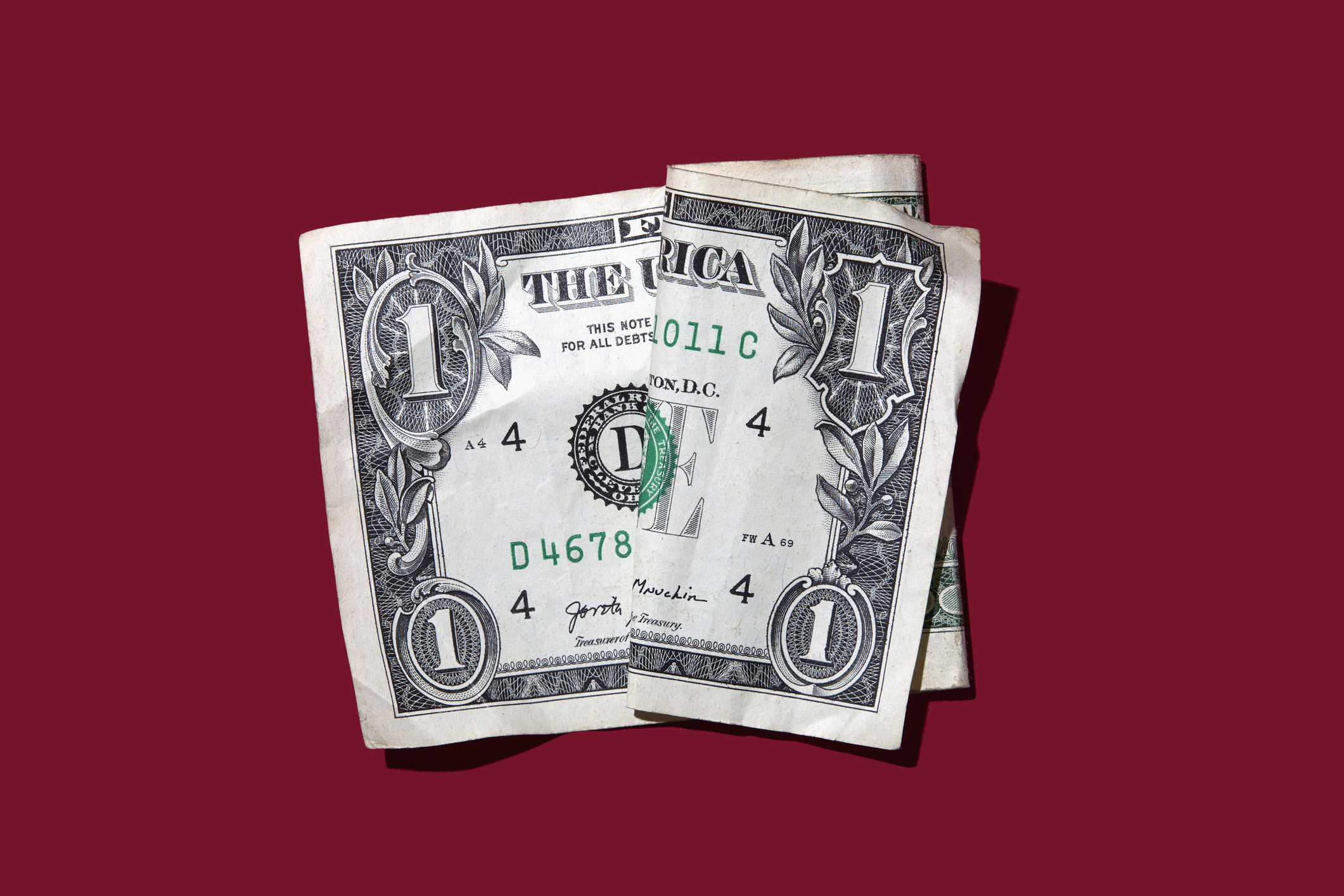Tennessee Tax Guide
Explore Tennessee's state tax rates for income, sales, property, retirement, and more. Learn how Tennessee compares nationwide.


Profit and prosper with the best of Kiplinger's advice on investing, taxes, retirement, personal finance and much more. Delivered daily. Enter your email in the box and click Sign Me Up.
You are now subscribed
Your newsletter sign-up was successful
Want to add more newsletters?
Navigating the complexities of state taxes can be daunting, but understanding Tennessee's tax landscape is essential for residents and newcomers alike.
In this guide, we'll explore key components of The Volunteer State's tax system, from income and sales taxes to property taxes and retirement benefits.
Tennessee state tax: Overview
Tennessee has its pros and cons when it comes to taxes.
From just $107.88 $24.99 for Kiplinger Personal Finance
Become a smarter, better informed investor. Subscribe from just $107.88 $24.99, plus get up to 4 Special Issues

Sign up for Kiplinger’s Free Newsletters
Profit and prosper with the best of expert advice on investing, taxes, retirement, personal finance and more - straight to your e-mail.
Profit and prosper with the best of expert advice - straight to your e-mail.
The state's sales tax is one of the highest in the United States, but some other advantages balance that out.
For example, there’s no state income tax at all in the Volunteer State, property taxes are on the lower side compared to other states, and the overall cost of living tends to be relatively affordable.
In the news: Tennessee voters will decide this year whether to ban the statewide property tax. For more information, check out Kiplinger's report, Do You Pay Property Taxes in Tennessee? What Homeowners Need to Know in 2026.
[Data for this state tax guide was gathered from a number of sources including the Census Bureau, the state’s government website, and the Sales Tax Handbook. Property taxes are cited as a rate percentage rather than the assessed value.]
Tennessee income tax

There is no income tax in Tennessee. The state previously taxed income earned from stocks and bonds, but this tax was repealed in 2021.
Tennessee retirement taxes
Tennessee is another state with no income tax, so there is no state tax liability on your retirement income.
- Tax on Taxable Income: N/A
- Social Security: Not taxable
- Pensions: Not taxable
- 401(k) and IRA Distributions: Not taxable
Tennessee sales tax

Tennessee has a 7% statewide sales tax. There's also an additional state tax of 2.75% on sales of single items that applies to the portion of the sales price from $1,600 to $3,200. Localities can add up to 2.75%, with an average combined state and local rate of 9.56%, according to the Tax Foundation.
- Groceries: Taxable
- Clothing: Taxable
- Prescription drugs: Taxable
- Motor Vehicles: Taxable
How much are property taxes in Tennessee?

Tennessee's property tax rate is below the national average, especially in these ten cheapest places to live in Tennessee.
That's because the average effective property tax rate in Tennessee is just 0.49% (according to the Tax Foundation).
Tennessee Property Tax Breaks for Retirees
Property Tax Relief Program: Tennessee has a property tax relief program that reimburses income-eligible adults age 65 or older for taxes paid on their primary residence.
Note: Veterans with disabilities and their surviving spouses (of any age) might also qualify for the Tennessee property tax relief program.
Property Tax Freeze: There's also a property tax freeze program available for eligible Tennessee residents. If approved, homeowners can have their tax-assessed value frozen, preventing tax increases in following years. Homeowners must meet specific criteria to qualify.
- Age 65 or older by the end of the tax year in which the application is filed
- Own the primary residence in a participating Tennessee county or city
- Income must not exceed county limits. (Income limits can change each year.)
Tennessee gas tax

Gasoline: $0.20 per gallon.
Diesel: $0.17 per gallon.
Source: Sales Tax Handbook
Tennessee taxes on alchohol and tobacco
Product | Tax Amount |
|---|---|
Cigarette | $0.62 per pack |
Other Tobacco Products | 6.60% of wholesale price |
Source: Sales Tax Handbook
Product | Tax Amount |
|---|---|
Wine | $1.21 per gallon |
Beer | $1.29 per gallon |
Liquor | $4.40 per gallon |
Source: Sales Tax Handbook
Tennessee estate and inheritance taxes
There is no estate tax or inheritance tax in Tennessee.
Related Content
Profit and prosper with the best of Kiplinger's advice on investing, taxes, retirement, personal finance and much more. Delivered daily. Enter your email in the box and click Sign Me Up.

Katelyn has more than 6 years of experience working in tax and finance. While she specialized in tax content while working at Kiplinger from 2023 to 2024, Katelyn has also written for digital publications on topics including insurance, retirement, and financial planning and had financial advice commissioned by national print publications. She believes knowledge is the key to success and enjoys providing content that educates and informs.
-
 4 High-End Experiences Worth the Splurge After 50
4 High-End Experiences Worth the Splurge After 50These curated date ideas provide the perfect backdrop for couples ready to enjoy the very best that the world has to offer.
-
 Health Care Stocks Have Sagged. Can You Bet on a Recovery?
Health Care Stocks Have Sagged. Can You Bet on a Recovery?The flagging health care sector has perked up a bit lately. Is it time to invest?
-
 Costco's Auto Program: Can Membership Pricing Really Save You Money on a Car?
Costco's Auto Program: Can Membership Pricing Really Save You Money on a Car?Costco's Auto Program can simplify the car-buying process with prearranged pricing and member perks. Here's what to know before you use it.
-
 2026 Tax Refund Delays: 5 States Where Your Money Is Stuck
2026 Tax Refund Delays: 5 States Where Your Money Is StuckState Tax From New York to Oregon, your state income tax refund could be delayed for weeks. Here's what to know.
-
 How One Extra Dollar of Income Can Cost You Thousands in Retirement
How One Extra Dollar of Income Can Cost You Thousands in RetirementRetirement Even modest changes in retirement income can raise Medicare premiums under IRMAA. Here’s how a small increase can affect your retirement costs.
-
 First the Penny, Now the Nickel? The New Math Behind Your Sales Tax and Total
First the Penny, Now the Nickel? The New Math Behind Your Sales Tax and TotalRounding Tax A new era of "Swedish rounding" hits U.S. registers soon. Learn why the nickel might be on the chopping block, and how to save money by choosing the right way to pay.
-
 Over 65? Here's What the New $6K Senior Tax Deduction Means for Medicare IRMAA
Over 65? Here's What the New $6K Senior Tax Deduction Means for Medicare IRMAATax Breaks A new tax deduction for people over age 65 has some thinking about Medicare premiums and MAGI strategy.
-
 U.S. Congress to End Emergency Tax Bill Over $6,000 Senior Deduction and Tip, Overtime Tax Breaks in D.C.
U.S. Congress to End Emergency Tax Bill Over $6,000 Senior Deduction and Tip, Overtime Tax Breaks in D.C.Tax Law Here's how taxpayers can amend their already-filed income tax returns amid a potentially looming legal battle on Capitol Hill.
-
 How to Open Your Kid's $1,000 Trump Account
How to Open Your Kid's $1,000 Trump AccountTax Breaks Filing income taxes in 2026? You won't want to miss Form 4547 to claim a $1,000 Trump Account for your child.
-
 In Arkansas and Illinois, Groceries Just Got Cheaper, But Not By Much
In Arkansas and Illinois, Groceries Just Got Cheaper, But Not By MuchFood Prices Arkansas and Illinois are the most recent states to repeal sales tax on groceries. Will it really help shoppers with their food bills?
-
 7 Bad Tax Habits to Kick Right Now
7 Bad Tax Habits to Kick Right NowTax Tips Ditch these seven common habits to sidestep IRS red flags for a smoother, faster 2026 income tax filing.